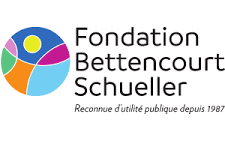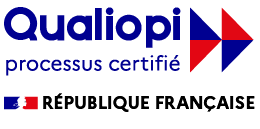Teachers
Vincent Dumestre artistic director of Le Poème Harmonique
Biographie
Vincent Dumestre, artistic director of Le Poème Harmonique
*2003-2004: In residence at Royaumont; 2003 to 2010: Training and production of Lully’s “Le Bourgeois Gentilhomme” with Benjamin Lazar. 2006: Formation Orfeo Dolente de Belli. 2007>2009: Training and production of Lully’s “Cadmus and Hermione” with Benjamin Lazar
Vincent Dumestre studied art history at the Ecole du Louvre and classical guitar at the Ecole Normale de Musique de Paris. During his musical career, he took up the Baroque guitar and theorbo with masters such as Hopkinson Smith and Rolf Lislevand. He appears as soloist with numerous ensembles, including the Ricercar Consort, La Simphonie du Marais, Le Concert des Nations, La Grande Ecurie et la Chambre du Roy, and the Centre de Musique Baroque de Versailles, with whom he has also made several recordings.
In 1998, Vincent Dumestre founded Le Poème Harmonique, an ensemble specializing in the Baroque repertoire, which he now directs. All of Le Poème Harmonique’s recordings have received numerous awards from the music press. Their stage performances have given them a unique place on the international Baroque scene, and they are welcomed by the most prestigious programmers in France and abroad: the Opéra Comique, the Théâtre des Champs-Elysées, the Cité de la Musique, the Automne en Normandie festival, the Opéra Royal de Versailles, the Festival de Saint-Denis, the Abbaye de Royaumont, the Ambronay festival, the BBC Proms, the Concertgebouw in Amsterdam…
* previous collaborations with Royaumont
Recipients
- 12 trainees and instrumentalists (viols, lutes, harpsichord)
Terms and conditions
Calendar
Sessions
From Wednesday 10th to Sunday 14th July 2024 at the Château de Parentignat (Auvergne).
Training duration: 6 days, 42 hours
Training schedule: see program sheet below.
This training session will take place at the Château de Parentignat, in the Auvergne region.
To facilitate travel, trainees will be accommodated at the Château de Parentignat from the evening of Monday July 8, 2024 to the morning of Monday July 15, 2024.
The production manager will contact the trainees to coordinate the outward and return journeys.
Please note that the Royaumont Foundation will not cover travel between the beneficiaries’ home and the Issoire train station.
The Royaumont Foundation will pay for :
- Accommodation on site in twin rooms
- Meals on site
- Grouped cabs between Issoire station and the Château de Parentignat provided by the Royaumont Foundation (no individual cabs).
The participants formally commit themselves to follow the entire curriculum.
All Royaumont Foundation training programs have a minimum access time of 11 working days.
For example, if the Royaumont Foundation validates the application on June 14, it can offer the beneficiary a course that begins on June 29.
Public presentation
Fenêtre sur cour(s) on Sunday, July 14, 2024 at 6pm.
Selection
Pre-selection based on application and audition.
Auditions in Paris in November 2023 (date and venue to be confirmed).
Elements to be provided
For the application and selection process, you will need to provide the following:
- letter of motivation
- biography (imperative: 600 characters including spaces)
- CV
- picture
- 1 or more video files related to the chosen course (please note that WeTransfer links will not be uploaded)
Closing date for applications
Sunday, October1, 2023 at midnight
Fiche programme
version n°1 of 07/13/2023
Number of traines minimum / maximum
Minimum enrolment: 10 trainees and instrumentalists (viols, lutes, harpsichord)
Maximum number of trainees: 12 and instrumentalists (viols, lutes, harpsichord)
Pre-requisites and conditions of access to the course
Young professional singer in the final stages of higher education
Participants formally undertake to complete the entire 6-day course.
The conditions of access are transmitted during the training.
Targeted competencies / operational objectives
At the end of the training the beneficiary will be able to :
- Discover the repertoire of early 18th-century French cantatas
- Explore the specific technical and stylistic features of this repertoire, which combines allegory and decorum.
- Explore the musical practice of French salons at the crossroads of dramatic genres, between spoken theater and operaStudy the musicological sources that inform interpretation
Educational objectives
Knowledge
- Analyze a work (form, rhythm, harmony…)
- Acquire the technical tools needed to interpret a repertoire, and know when and how to use them.
- Understand a sung text in its literal meaning as well as its subtext
- Integrate the pronunciation of sung texts in one’s mother tongue as well as in foreign languages
- Defining the dramaturgical content of a work
- Memorize musical works to detach oneself from the score
- Identify the specific characteristics of the professional network in which the beneficiary wishes to pursue a career
Expertise
- Build a coherent concert program with a given timing
- Efficiently repeat a program in a limited amount of time
- Findyour musical and human place in a band
- Acquire the technical tools needed to interpret a repertoire, and know when and how to use them.
- Work and search in the music library: find a specific work or search for lesser-known works to perform, identify an edition and its relevance to a composer’s work.
- Take into account the information provided by a musicologist specializing in a given repertoire to fine-tune your interpretation of a work.
- Define one’s own interpretation of a work, based on advice from supervisors
- Affirm your career plan by defining the various stages and a development strategy
- Publicize your work to the public, the press and professionals
soft skills
- Hearing and understanding managers’ requests and musical suggestions
- Clearly express musical intentions and justify them
- Communicating with kindness to the artists with whom we play the difficulties we may encounter in our relationships.
- Share your interpretation with an audience during the final performance
- Exchanging musical ideas with artists with whom we play and defining a common discourse
- Adapt to the demands of a repertoire (pronunciation, musicality of a language…)
- Benefit from the learning of other training participants
- Identify all the people present at the training session and their roles: supervising artists, artistic director, administrator, production manager, receptionist…
- Identify the various contacts in a professional sector and know how to approach them to develop your artistic projects.
Course description/content of the training
The entire program is designed around an immersive, co-constructed pedagogy.
This new program, organized in one session, will combine theoretical and practical approaches, in the form of experimental workshops, creative phases, seminars, meetings, conferences and role-playing situations, with the common thread for this third edition: from solo form to collective project.
| DAY 1 | 10 a.m.: welcome and tour de table 11am-1pm/14.30pm-6.30pm: Group lessons, detailed work on each work, definition of aesthetic and technical specificities | Face-to-face reception, with all the participants in the training. |
| DAYS 2 TO 4 | 10am-1pm/14.30pm-6.30pm: Group lessons, detailed work on each work, definition of aesthetic and technical specificities | Sessions facilitated by the speakers. |
| DAY 5 | 10am-1pm/14.30pm-4.30pm: Group lessons, detailed work on each work, definition of aesthetic and technical specificities 6pm-7.30pm: Fenêtre sur cour(s) (Window on the courtyard): rehearsals open to the public, presentation of the group and the work carried out during the week. | Sessions facilitated by the speakers. |
| DAY 6 | 10am-1pm/14.30pm-6.30pm: Group lessons, detailed work on each work, definition of aesthetic and technical specificities | Sessions facilitated by the speakers. |
This sample schedule can be adapted to suit the needs of the course and its participants.
Methods used
Teaching aids :
Practical, face-to-face teaching in the form of performance classes given by the main instructor in small groups or collectively, depending on the repertoire covered.
A public presentation at the end of the course can take the form of a masterclass, a presentation of the entire body of work performed or other…
It brings together all beneficiaries and does not give rise to remuneration.
Technical resources available :
The rooms are spacious, equipped with music stands (solid or folding), chairs or stools suitable for musicians (without armrests) and the instruments required for training.
Beneficiaries bring their own instruments and scores, which are not supplied.
Outside lesson times, rehearsal spaces can be made available free of charge, on request and subject to availability.
The abbey monument in its entirety (rooms and gardens)
Documentation via private Drive
Monitoring and evaluation methods
Before training :
Selection of trainees by the pedagogical managers of the CRRs in the Ile-de-France region
Registration only with the partner CRR establishments. No registration on Royaumont website
During the course, face-to-face
- Evaluation of the beneficiary’s responsiveness and ability to quickly integrate the suggestions made by the consultant.
- During the presentation at the end of the training: the interpretation of one or several works in a real situation in front of an audience allows to appreciate the evolution of the interpretation, as well as the emotional and physical postures.
The interview is used to evaluate and guide career choices.
In particular, the following are observed for the beneficiary :
- the quality of physical and gestural ease,
- the relevance of interpretation in relation to historical and musicological analysis,
- accuracy and coherence within the ensemble,
- the relevance of work techniques,
- taking into account the spatial and acoustic configuration of the site,
- the quality of the relationship with the public.
The beneficiaries sign a sign-in sheet for each half-day.
End course :
A certificate stating the objectives, nature and duration of the course, and the results of the training assessment, is given to the beneficiary, along with the certificate where applicable.
The beneficiary fills in a qualitative evaluation form in order to assess the training’s achievements from an artistic, pedagogical, human and material point of view.
Concerts outside the training framework enable us to monitor the development of the beneficiary’s career after the training courses, and in particular to evaluate the quality of performance and the number of concerts given.
A post-training follow-up is established, for which the beneficiaries are asked to inform during the six months following the end of the training of the contracts they have obtained.
Accessibility and consideration of disability situations
The Royaumont Foundation has made the acceptance and participation of people with disabilities a strong commitment to its project. Our training courses are open to people with disabilities and different arrangements can be made according to the specificities of each course. To discuss your needs, please contact us when you register.
- Rooms accessible by elevator.
- Screen equipment and amplified speakers.
- Catering on the first floor.
Pedagogical manager
François Naulot, artistic director of the Voix et Répertoire division
f.naulot@royaumont.com
Administrative referent
Catherine Huet, administrator of the Voix et Répertoire division
Huet.c@royaumont.com
Disability referents
Samuel Agard and Doriane Trouboul
referenthandicap@royaumont.com
Coproduction with Château de Parentignat

La Fondation Bettencourt Schueller est le mécène principal du pôle Voix et répertoire de la Fondation Royaumont.

La certification qualité à été délivrée au titre de la catégorie d’action suivante :
ACTION DE FORMATION